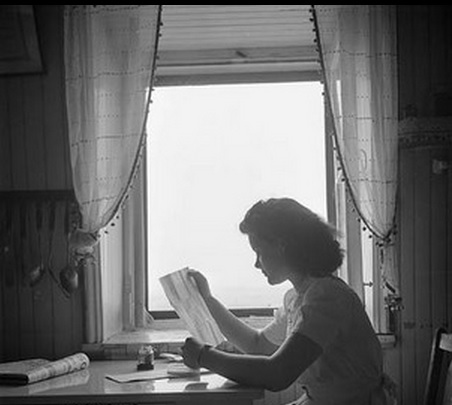Have I lived well?
We all ask this question at various times in our lives.
The need to make sense of life is deep-seated. We look back at our childhoods, our family, our successes and failures, and wonder if we’ve done enough. What will my legacy be?
If we reflect on our lives, though, we risk being left with a whole lot of negativity, as we focus on our failures and missed opportunities. Is it really a good idea?
The answer is yes, it is a good idea—if we do it in the right way. In fact, if we do it the right way, it’s good for our well-being and can even give us a new sense of purpose and direction.
So what’s the right way to reflect on life? I was fortunate to be given some clues to this a few years ago by my mother-in-law, Wendy.
Wendy had realized it was 100 years since her grandparents’ wedding—and she wanted to celebrate with the whole family. For her, celebrating the anniversary was a way of reaching out in several ways:
>>> reaching into the past and showing love and gratitude for those members of the family who were no longer with us;
>>> reaching out to present family members and sharing a joyful occasion;
>>> and reaching into the future, keeping a family memory alive.
First, she collected together her old family photos. Her most treasured image was a black-and-white photograph of her grandparents on their wedding day. Maud, who was a parlor maid, is dressed in white lace with a wide-brimmed hat plumed with feathers, and George, a blacksmith, is in a three-piece suit. Maud is glancing shyly at the ground, while George, who has an impressive moustache, looks with a kindly expression straight at the camera.
Next, Wendy took her aunt on a trip to the village in Wales where her grandparents grew up and photographed George’s childhood home. And she took photos of the impressive iron gates of nearby Powis Castle—because George helped make them when he was an apprentice blacksmith.
Back at home, she asked members of her family to send her their photos. She received pictures of Maud and George’s children, their grandchildren, and so on—until she had images of six generations of her family, the youngest only three years old.
Finally, with her son’s help, she prepared to self-publish a book: her grandparents’ legacy.
The book is precious to us. Even more so, because shortly before she published it, Wendy herself passed away. We published it on her behalf and every branch of the family has a copy. So it’s her legacy, too.
And that’s the first clue she gave me to creating a meaningful legacy—we need to capture our memories and share them with our family and friends.
The only things missing from Wendy’s book are stories in her grandparents’ own words. I would love to read Maud’s stories of her life growing up in nineteenth century Wales, or George’s tales of making the castle gates. And while I remember Wendy’s stories of her adventures in Wales with her aunt, my children won’t remember—unless I write them down for them.
And that’s the second clue about creating a legacy. Stories are valuable, and they’re all too easily forgotten.
So I started to think about the best way of capturing my memories and my life stories so I can share them with my family in years to come.
As I thought about it, I began to worry. Compared with Wendy’s black-and-white photographs, my legacy seems ephemeral and insubstantial. All my recent photos are on my phone or PC. And while I could tap out a memoir on my computer, how personal would that be? Even worse, I could accidentally delete it all with a single keystroke.
So I’ve decided to write a legacy journal. I’m using it to reflect on my past, and write down stories and memories from my childhood, my teenage years and my young adulthood.
And I’m writing it by hand. Partly because that’s more personal. But also because writing by hand helps us recall important events and special moments we might otherwise forget. And it’s a calming activity—psychologists believe writing a journal by hand brings us into the state of mindfulness where anxieties and frustrations fade away.
In other words, it’s good for us.
But what about the risk that I’ll be overcome with negative thoughts? Well, I’m avoiding that by focusing on my achievements. I’m not doing it in a boastful way—I simply want to share the things in my life that I think have been worthwhile and worth remembering.
And at the same time, I’m reaching into the future. My story isn’t done yet, so I’m taking the opportunity to plan my future legacy. I’m considering what I can do to make things better for my family, for my community—and maybe for more people than that. That’s one reason I’m sharing my discoveries in this article.
A fortunate side-effect of creating a legacy journal is that I’m feeling more at peace, because I’ve had the chance to reflect on my achievements. And at the same time I’m feeling more motivated—I want to make sure I do many more things in my life that are worth remembering.
So it turns out that, by asking myself “Have I lived well?” and reflecting on my life in the right way, I’ve gained a new sense of purpose and direction. And that’s not only good for me; hopefully it will also be good for the family members who read my legacy journal in years to come.
Isn’t it time you started creating your legacy, too, by saving your stories and memories to share with family and friends?
~
Relephant:
8 Mesmerizing, Must-Read Spiritual Memoirs.
~
Author: Jacqueline Moore
Editor: Catherine Monkman
Photo: Library Archives at Flickr







Read 4 comments and reply